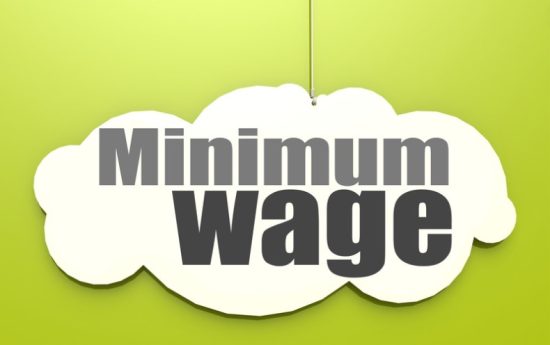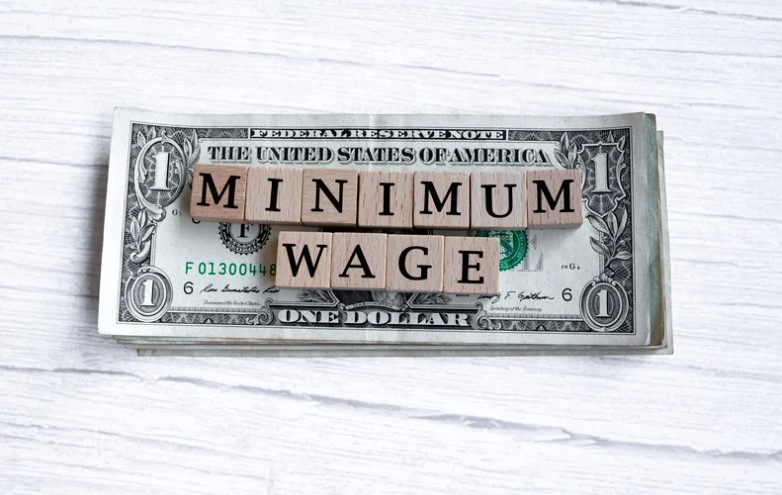Welcome to our blog post on the minimum wage in Edmonton! If you’ve ever wondered about the standard pay rates in this vibrant. Canadian city, you’ve come to the right place. Whether you’re a worker looking to understand your rights or an employer seeking clarity on employment regulations, we’ve got all the information you need. So, let’s dive into the world of wages and explore what makes Edmonton tick when it comes to fair compensation for its hardworking residents!
Overview of Minimum Wage in Edmonton

In Edmonton, just like in other cities across Canada, the minimum wage serves as a vital benchmark for ensuring fair compensation for workers. It sets the floor for hourly pay rates and provides a foundation upon which individuals can build their financial stability. The minimum wage is designed to protect employees from being exploited by employers who may seek to underpay them.
As of September 2021, the minimum wage in Edmonton stands at $15 per hour. This rate applies to most adult workers in various industries, ranging from retail and hospitality to healthcare and construction. However, there are exceptions and exemptions based on specific circumstances or occupations.
The government of Alberta has implemented these regulations to promote equitable treatment within the workforce while also considering factors such as inflation and economic growth. By establishing a standard minimum wage, it aims to ensure that hardworking individuals are compensated fairly for their time and effort.
While some argue that higher minimum wages can lead to increased unemployment rates or potential business closures due to increased labour costs, proponents believe that adequate compensation improves employee morale, productivity, and overall quality of life. In turn, this can benefit businesses through enhanced customer satisfaction and loyalty.
What is the Minimum Wage in Edmonton?
The minimum wage in Edmonton is an important topic that affects many workers in the city. It refers to the lowest hourly rate of pay that employers are legally required to provide their employees. This ensures a basic standard of living and helps protect workers from exploitation.
Currently, the minimum wage in Edmonton is $15 per hour. This applies to most adult employees, regardless of whether they work full-time or part-time. It’s worth noting that this rate can change over time as it is reviewed annually by the provincial government.
For young workers under the age of 18 who are not yet considered adults, there is a separate minimum wage known as the youth minimum wage. This rate is slightly lower at $13 per hour and applies to those who have less work experience or are still attending school.
The impact of the minimum wage on workers in Edmonton can vary depending on individual circumstances. For some, it provides a fair and decent income that allows them to cover their basic needs and support themselves financially. However, for others, especially those with dependents or high living costs, it may still fall short of providing a comfortable standard of living.
Impact of the Minimum Wage for Workers in Edmonton
The impact of the minimum wage on workers in Edmonton is a topic that has been widely discussed and debated. While some argue that raising the minimum wage is beneficial for workers, others believe it can have negative consequences.
- One of the main benefits of increasing the minimum wage is that it helps to alleviate poverty and reduce income inequality. By ensuring workers earn a fair wage, they are better able to meet their basic needs such as food, housing, and healthcare. This can lead to improved living conditions and overall well-being for individuals and families.
- Higher wages also provide an incentive for workers to stay in their jobs longer and be more productive. When employees feel valued and adequately compensated for their work, they are more likely to be motivated and committed. This can result in increased job satisfaction, reduced turnover rates, and higher levels of employee engagement.
- On the other hand, critics argue that raising the minimum wage could lead to job losses as businesses may struggle to afford higher labour costs. Small businesses in particular may find it challenging to adjust their budgets accordingly. Additionally, some employers might respond by cutting hours or reducing staff numbers to offset increased labour expenses.
Minimum Wage Laws and Regulations in Edmonton

When it comes to minimum wage laws and regulations, the city of Edmonton has certain guidelines in place to protect workers’ rights. These laws ensure that employees are paid fairly for their work and provide a baseline income for individuals.
In Edmonton, the current minimum wage is set by the provincial government of Alberta. As of October 2020, the minimum wage in Edmonton is $15 per hour for most employees. However, there are exceptions when it comes to specific occupations or industries.
Certain sectors such as liquor servers have a separate minimum wage rate due to different tipping practices. They receive a lower base hourly rate with expectations of supplementing their income through tips received from customers.
To enforce these standards, Employment Standards Officers conduct inspections and investigations if there are complaints filed regarding non-compliance with employment standards. Employers found violating these regulations may face penalties or legal action.
Both employers and employees need to be aware of these laws so they can ensure fair compensation practices are being followed. The government provides resources and information on its website to help educate individuals about their rights and responsibilities under the employment standards legislation.
Employment Standard Rules in Edmonton
Employment standard rules in Edmonton ensure that both employers and employees are protected and treated fairly in the workplace. These rules cover various aspects of employment, including wages, hours of work, overtime pay, vacation time, and more.
- One important aspect of employment standards is the minimum wage. In Edmonton, the current minimum wage is $15 per hour for most employees. This means that employers must pay their workers at least this amount for every hour worked.
- Another key rule is regarding hours of work. According to employment standards in Edmonton, employees cannot be required to work more than 8 hours a day or 44 hours a week without receiving overtime pay. Overtime must be paid at a rate of 1.5 times the employee’s regular hourly wage.
- Vacation time is also regulated under employment standards in Edmonton. Employees are entitled to receive at least two weeks of paid vacation after working for one year with the same employer.
- In addition to these rules, there are regulations regarding breaks during shifts as well as provisions for maternity leave and other forms of leave.
What Are the Exempted Occupations From the Minimum Wage Standards in Edmonton?
While the minimum wage in Edmonton applies to most workers, certain occupations are exempted from these standards. These exemptions exist to accommodate specific circumstances and industries where a different approach is deemed appropriate.
One such exempted occupation is that of liquor servers. Due to the unique nature of their job and the potential for tips as part of their income, liquor servers have a separate minimum wage rate. Currently, they receive a lower base hourly wage with an expectation that tips will supplement their earnings.
Similarly, employees who live on-site at their place of employment, such as caretakers or farm workers residing on farms, may be subject to different minimum wage regulations. This recognizes that these individuals often receive additional compensation through housing or other benefits provided by their employers.
Additionally, certain types of salespersons who work mainly on commission may also have different minimum wage requirements. Their pay structure allows them to earn income based on sales performance rather than solely relying on an hourly rate.
Are Students Allowed to Work in Edmonton?

Are students allowed to work in Edmonton? Absolutely! The government of Alberta actively encourages students to gain work experience while studying. This not only helps them develop new skills and build their resume but also provides a means for financial independence.
There are certain regulations and restrictions in place, however. Students under the age of 12 cannot be employed, and those between 12 and 14 years old can only work during school holidays or on weekends. For students aged 15-17, there are limitations on the number of hours they can work during school days.
Employers need to ensure that student employees are not being taken advantage of or subjected to unsafe working conditions. The employment standards in Edmonton protect the rights of all workers, including students.
As for wages, student employees are entitled to receive at least the minimum wage set by the government. Both employers and students must be aware of these laws so that everyone is treated fairly.
Allowing students to work in Edmonton benefits both the individual and the community as a whole. Students gain valuable skills and income while contributing positively to local businesses. So if you’re a student looking for part-time work opportunities in Edmonton, go ahead and explore your options!
Conclusion
In conclusion, the minimum wage in Edmonton is currently set at $15.00 per hour for all workers regardless of their age or position. This rate has been implemented to ensure that everyone in the city can make a living wage and have enough money to support themselves and their families. Although it may not seem like much, this small increase will help many people who are struggling financially by giving them a little extra income each month.










